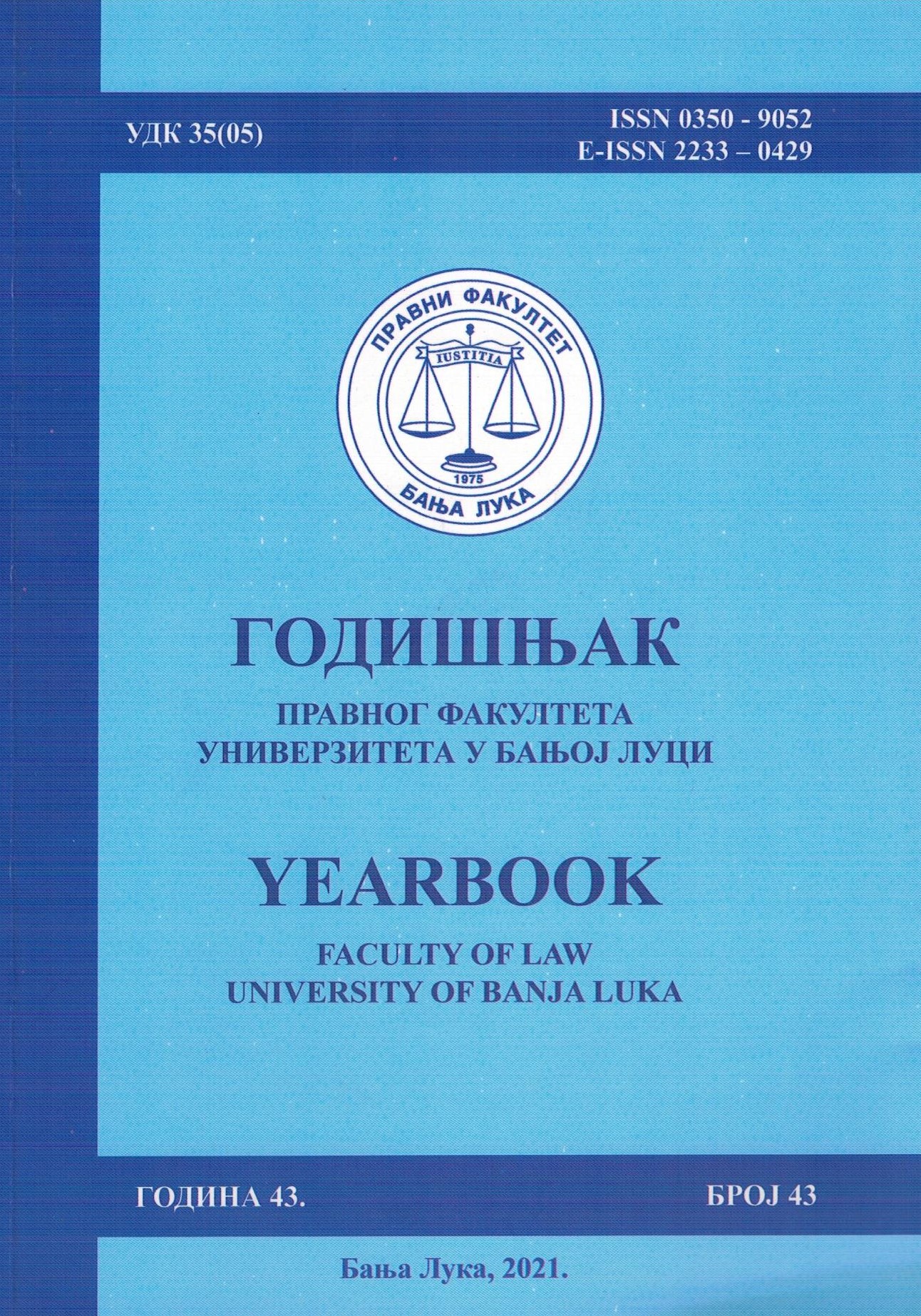FACTUAL EXPROPRIATION
Abstract
Expropriation is an institute by which the property right of a natural or legal person on immovable property is limited or taken away with an appropriate fee, and the procedure itself, the conditions and the amount of the fee are determined by law. With this institute, the legislator tried to create a balance between the protection of subjective rights and the general interest. It is clear that no country, from the time of ancient Rome until today, can develop without building buildings of public importance (hospitals, schools, power plants, etc.) and without carrying out infrastructure works, and that in this sense the state, i.e. the public authority, must react by in the property rights of natural and legal persons, but only in a strictly prescribed procedure. Everything else leads to the violation of property rights guaranteed by the constitution and laws of modern countries.
There are cases of construction of buildings of public interest or execution of other works of public interest that result in full or partial deprivation of property rights of natural or legal persons, even though there is no decision on confiscation, i.e. decision on determination of general interest and decision on expropriation. Legal theory and legal practice bring such cases under the concept of factual expropriation, that is, the so-called de facto expropriation, which differs from the concept of formal expropriation by the absence of essential elements of the legally established expropriation procedure.

This work is licensed under a Creative Commons Attribution-NonCommercial-NoDerivatives 4.0 International License.



